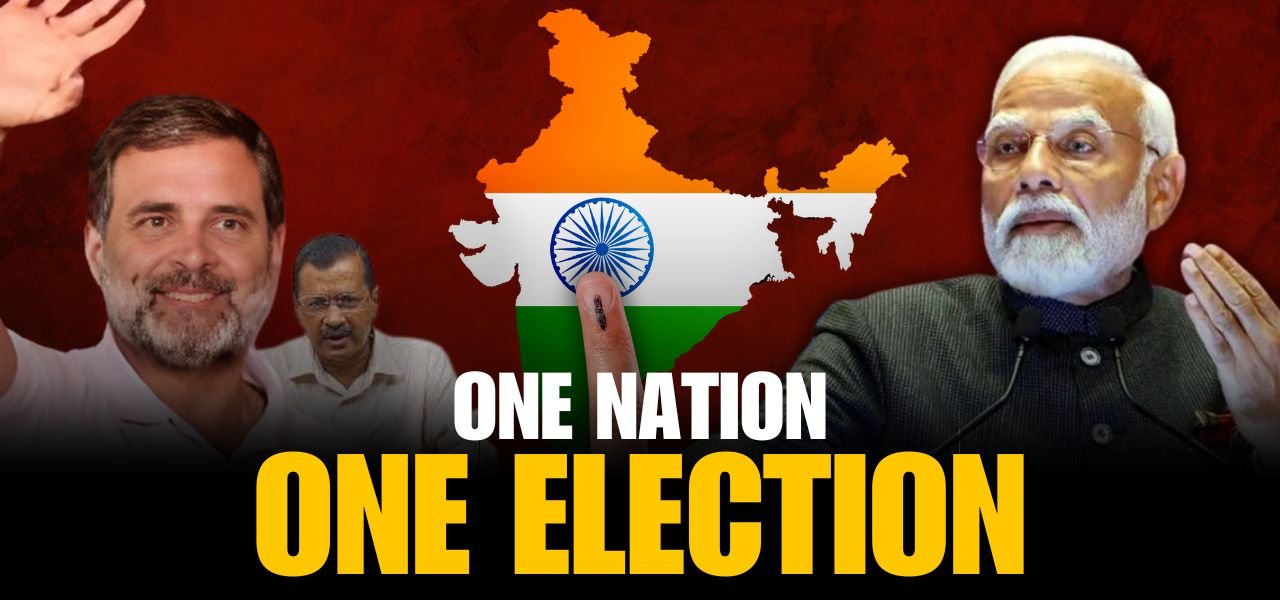“One Nation, One Election” refers to having ONE election for both the central government (Lok Sabha) and the state governments. At present, only a few states hold elections at the same time when the nation elects a new union government. These states include Andhra Pradesh, Sikkim, and Odisha. However, most Indian states have separate elections for the national and state governments.
This concept has been the subject of much controversy and debate in recent years, In 2018, former Indian president Shri Ram Nath Kovind highlighted the importance of ‘One Nation One Election’ in the Parliament. He stated that frequent elections in various parts of the country can negatively impact the economy, growth, and overall development of the nation.
But this concept is not something unexpected since even during the initial months post-independence also, it was brought up several times. Then what made ‘One Nation, One Election’ so much popular among people? Why is it being continuously discussed by Supporters and Critics? So here’s some information on pros, cons, etc., which will help you better understand this concept.
Historical Facts: ‘One Nation, One Election’
After India became a republic in 1950, elections for the Lok Sabha and all state assemblies were conducted every five years between 1951 and 1967. In 1952, 1957, 1962, and 1967, voters across the country voted for the Center as well as the states. However, with the reorganization of some existing states and the introduction of new ones in the country, this process was finished in 1968-69.
In past decades, India has made an adequate effort to accept the previous voting system. However, various political parties have continuously disagreed regarding the implementation of ‘One Nation, One Election’.
Here are some ‘Pros’ and ‘Cons’ related to implementing this concept in the largest democratic country like India.
MBA Rankings – Top 50 MBA Colleges in India | Top MBA Colleges Accepting CMAT in India
Challenges of Implementing ‘One Nation One Election’
Here are some major challenges that refrain from the implementation of ‘ONOE’ in India.
- The Lok Sabha has a five-year tenure but it can be dissolved even before that. Hence, a One Nation, One Election’ is not possible in this situation.
- The second biggest challenge will be to bring all the parties of the country together in favour of ‘One Election’ as different parties have different opinions on this.
- One Nation One Election’ can be beneficial only for the national party. Apart from that, regional parties will have to face some consequences.
- If elections occur on the same dates, polling booths will see a large number of visitors.. It will necessitate the presence of lots of security forces at the same time. Hence this can be challenging.
- Currently, Lok Sabha and Assembly elections are conducted separately in the country, leading to a constrained availability of EVMs and VVPATs. However, consolidating elections into a single event nationwide would amplify the demand for these machines concurrently, posing a significant challenge to address.
MBA Placements – IIM Placments | Placement Wise Best MBA Colleges
What Are the Benefits of One Nation One Election?
National Unity & Integrity
The concept of ONOE promotes a sense of togetherness among citizens and highlights the idea that everyone is a part of the same country with common values and aspirations.
Reduced Financial Burden
The former President of India, Mr Kovind, suggested that frequent elections in India somehow create a financial burden. The government needs to spend a good amount for the smooth conduct of the election.
Enhance Voter Participation
The idea of simultaneous elections can promote national unity and encourage the collective participation of many people in the electoral process. This will increase voter participation and create a more democratic system.
Improve Governance
Frequent elections make public officers focus on electoral campaigns rather than policymaking. Hence, ONOE allows them to concentrate on their political duties. This will ultimately improve the governance in the country.
Minimize Electoral Malpractices
Conducting hassle-free elections can be a difficult task. Sometimes, frequent elections can lead to many Electoral Malpractices, such as Corruption, Voter Manipulation, Illegal Voting Activities, Violence, etc. Here, ONOE can play a significant role in minimizing such practices around the country.
Know About – Direct MBA Admissions in India | Top MBA Colleges of MAT
Conclusion
So, summarizing everything we have covered, few yet essential facts related to the One Nation, One Election (ONOE) in India. From historical facts and challenges to the benefits of implementing ONOE, we have mentioned almost everything in this Article. However, there has been continuous debate over this for many years, which raises considerable concern about accepting the concept of simultaneous elections in Indian democracy.
Implementing a One-Nation-One Election will minimize the financial burden related to frequent polls. On the other hand, there are possible concerns like the dominance of national issues over local concerns during elections. This situation can increase the possibility of political division. Hence, the government should balance all these factors before making any decision regarding the implementation of the ONOE in India.




